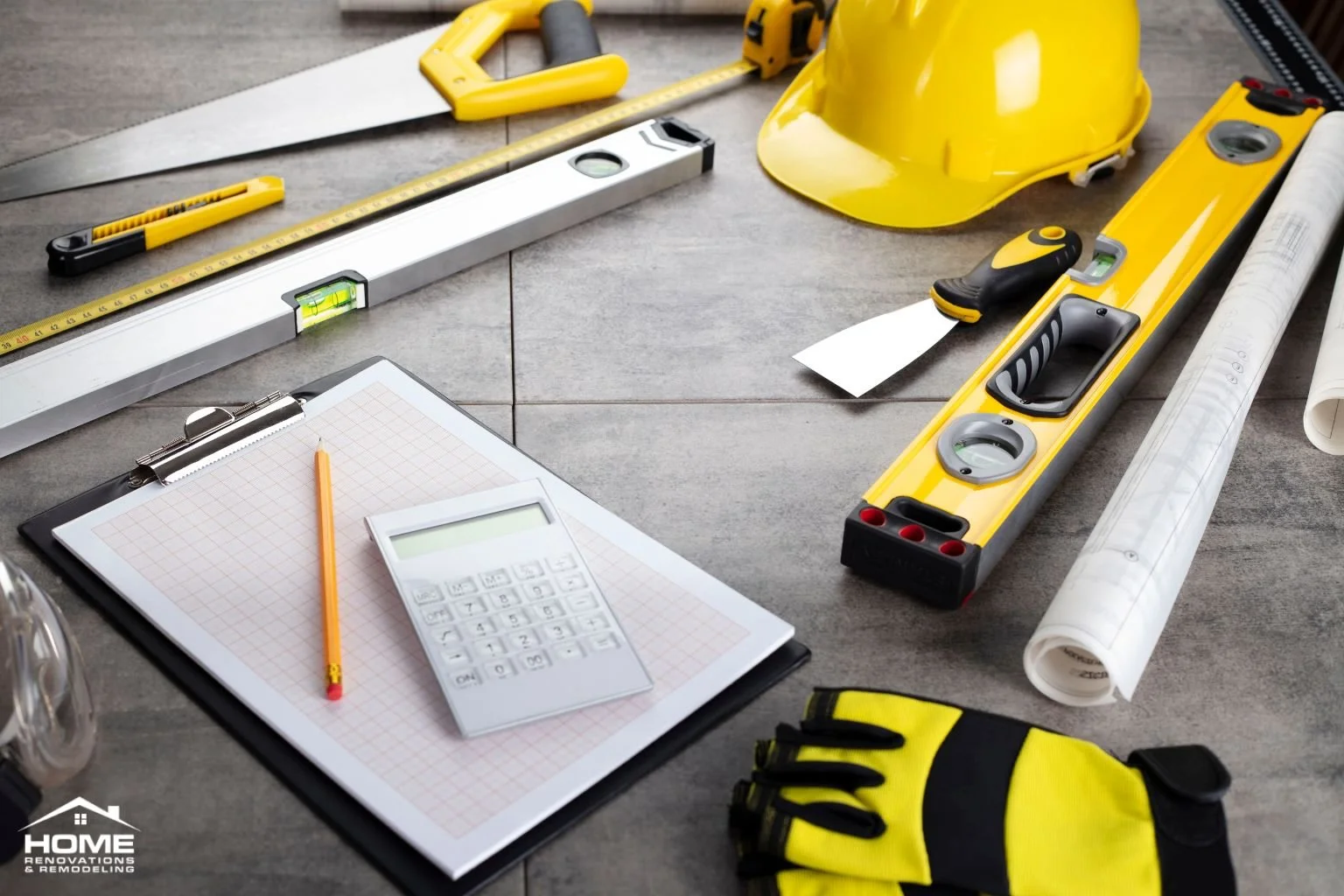Top Questions to Ask When Interviewing a Contractor in Houston
Finding the right contractor in Houston can make or break your home project. The key is knowing what questions to ask before you sign any contract or hand over money.
Asking the right questions upfront can save you thousands of dollars and weeks of delays. Smart homeowners prepare a list of specific questions that cover licensing, insurance, timelines, and costs.
This helps you spot red flags early. You can find contractors who are truly qualified for your job.
The Houston market has many contractors. Not all of them are reliable or skilled.
By asking tough questions, you can separate professionals from those who might leave you with poor work or unfinished projects.
Key Takeaways
Always verify a contractor's license, insurance, and references before hiring them.
Get detailed written estimates that include materials, labor, and timeline expectations.
Ask specific questions about permits, warranties, and how they handle unexpected problems.
Essential Questions to Ask When Interviewing a Contractor in Houston
These four key questions will help you find a qualified contractor who meets Houston's requirements. Each question targets specific areas that protect your investment and ensure quality work.
Are You Licensed and Insured for Work in Houston?
Start by asking for proof of current licensing. Texas requires contractors to have proper licenses for most home improvement work.
Houston also has specific permit requirements for many projects. Ask to see their insurance certificates.
You need proof of both liability insurance and workers' compensation coverage. This protects you if someone gets hurt on your property.
Request these documents:
Current contractor's license
Liability insurance certificate
Workers' compensation insurance
Bond information (if required)
Do not accept verbal promises. Real contractors carry these documents and show them without hesitation.
Call the insurance company to verify coverage is active. Some contractors try to work without proper licensing.
This puts you at risk for poor work, legal problems, and insurance issues.
What Experience Do You Have With Similar Projects?
Ask how many projects like yours they have completed in the last two years. Specific experience matters more than general construction knowledge.
Find out if they work on projects of your size regularly. A contractor who builds large commercial buildings might not be the best choice for your bathroom remodel.
Ask about any challenges they faced on similar projects. Good contractors learn from problems and can explain how they handle difficult situations.
Key experience questions:
How many similar projects completed recently?
What was the average project timeline?
What problems did you encounter and solve?
Request photos of recent work that matches your project type. This shows their skill level and work quality.
Can You Provide Local References and Examples of Previous Work?
Ask for at least three recent Houston-area references. Good contractors are proud to share past clients' contact information.
Request addresses of completed projects you can drive by to see. This gives you a real look at their finished work quality.
Ask if any previous clients would let you see the inside of completed work. Many satisfied customers will show off good contractor work.
When contacting references, ask:
Did they finish on time?
Did they stay within budget?
How was their cleanup?
Would you hire them again?
Check their websites for project galleries and customer reviews. Look for consistent positive feedback about their Houston work.
Be careful if they can't provide local references. This might mean they're new to the area or have unhappy customers.
How Do You Handle Permits and Local Regulations?
Ask who will obtain the required permits for your project. Professional contractors usually handle this process for you.
Find out if permit costs are included in their quote. Some contractors add permit fees later, which increases your total cost.
Ask how they stay current with Houston building codes. Local regulations change, and good contractors keep up with new requirements.
Permit and regulation topics:
Who pulls the permits?
Are permit costs included in the bid?
How do you handle inspections?
What happens if work fails inspection?
Make sure they understand Houston's specific requirements. Different cities have different rules, and contractors should know local codes well.
Ask about their relationship with local inspectors. Contractors who work regularly in Houston usually know the inspection process and requirements.
Important Factors to Discuss With Your Contractor
These key discussions help protect your investment and set clear expectations. Talk about timelines, payment terms, who works on your property, and what guarantees you receive.
What Is the Project Timeline and Payment Schedule?
Ask for a detailed timeline that breaks down each phase of your project. Good contractors provide specific start and end dates for major milestones.
Request this information in writing. This protects both you and the contractor from misunderstandings later.
Payment schedules should never require large upfront payments. Avoid contractors who ask for more than 10% down or full payment before starting work.
A fair payment structure typically looks like this:
Small deposit to secure your spot
Progress payments tied to completed work phases
Final payment after job completion and your approval
Never pay the full amount until you inspect the finished work. This gives you leverage if problems need fixing.
Who Will Be On Site and What Equipment Will Be Used?
Find out if the contractor uses their own crew or hires subcontractors. Both can work well, but you should know who is responsible for each part of your job.
Ask about the equipment they plan to use. Professional contractors own or rent quality tools for your specific project type.
Request proof of insurance for all workers. This includes both employees and any subcontractors they hire.
Get names and contact information for key team members. This helps if you need to reach someone when the main contractor is not available.
Some contractors may need to search online platforms like Yahoo to find specialized subcontractors for unique project requirements.
How Do You Manage Project Communication and Updates?
Establish how often you will receive updates about your project progress. Weekly check-ins work well for most jobs.
Ask what method they prefer for communication. Some contractors use text messages, while others prefer phone calls or emails.
Set boundaries for contact hours. Most contractors work during business hours and should not expect immediate responses to late-night messages.
Find out who serves as your main point of contact. Having one person handle communication prevents confusion.
Request photos of work progress, especially for phases that get covered up later. This creates a record of proper installation methods.
What Warranties or Guarantees Do You Provide?
Ask about warranties on both materials and workmanship. These should be separate guarantees with different time periods.
Material warranties typically come from manufacturers. Your contractor should help you register products and provide warranty paperwork.
Workmanship warranties cover the contractor's installation quality. Good contractors offer at least one year on their work.
Get all warranty information in writing before signing your contract. Verbal promises are hard to enforce later.
Ask what the warranty covers and what might void it. Some warranties require specific maintenance or exclude certain types of damage.
Frequently Asked Questions
These common questions help you gather essential details about a contractor's process and policies. Getting clear answers protects your project and ensures you work with the right professional.
Can you provide me with a detailed written proposal for my project?
A good contractor will always provide a written proposal before starting work. This document should list all materials, labor costs, and project timeline.
The proposal protects both you and the contractor. It prevents confusion about what work gets done and how much it costs.
Ask for specific details about materials brands and quality levels. Make sure the proposal includes cleanup and debris removal costs.
What is your timeline for commencement and completion of the work?
Professional contractors can give you realistic start and finish dates. They consider their current workload and your project size when setting timelines.
Weather delays happen often in Houston due to rain and storms. Ask how weather affects their schedule and completion date.
Get the timeline in writing as part of your contract. This helps you plan around the work and hold the contractor accountable.
How do you handle changes in the scope of work during a project?
Changes during construction are common and can affect your budget. A good contractor explains their change order process upfront.
They should provide written estimates for any additional work before starting it. This prevents surprise charges on your final bill.
Ask about their policy for small changes versus major modifications. Some contractors include minor adjustments in their original price.
Could you provide references from your previous projects in Houston?
Local references show the contractor has experience in Houston's climate and building conditions. They understand local challenges like soil issues and humidity.
Ask for at least three recent references from similar projects. Contact these homeowners to ask about work quality and professionalism.
Good contractors are proud to share their past work. They may even offer to drive by completed projects in your neighborhood.
What are your warranty or guarantee policies for the work you complete?
Quality contractors stand behind their work with written warranties. Different parts of your project may have different warranty lengths.
Materials often come with manufacturer warranties separate from labor warranties. Ask the contractor to explain both types of coverage.
Get warranty details in writing before signing your contract. Know who to call if problems arise after the project ends.
How do you ensure compliance with local building codes and permits?
Licensed contractors know Houston's building codes and permit requirements. They handle permit applications and inspections for you.
Ask to see their current license and insurance certificates. Make sure their license covers the work you need.
The contractor schedules required inspections at each stage of the project. They fix any code violations found during inspections at no extra cost to you.




